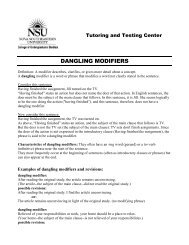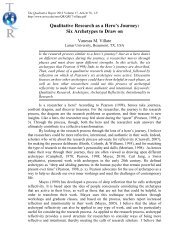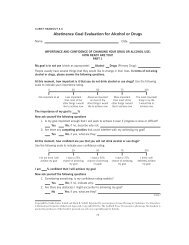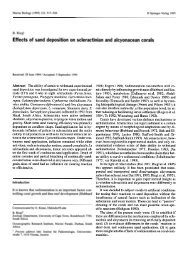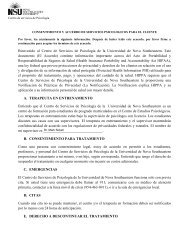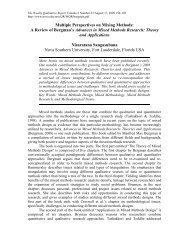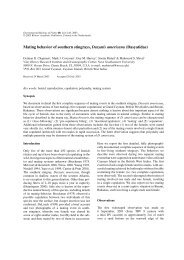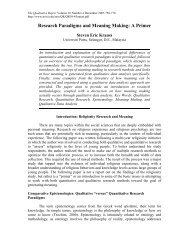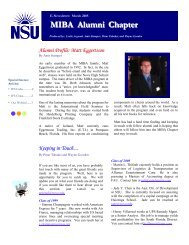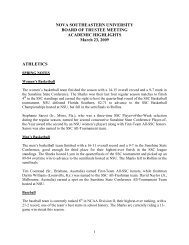Contextualizing Theories and Practices of Bricolage Research
Contextualizing Theories and Practices of Bricolage Research
Contextualizing Theories and Practices of Bricolage Research
Create successful ePaper yourself
Turn your PDF publications into a flip-book with our unique Google optimized e-Paper software.
Matt Rogers 13<br />
context, bricoleurs attempt to remove knowledge production <strong>and</strong> its<br />
benefits from the control <strong>of</strong> elite groups. (p. 344)<br />
Although they may not identify their work as bricolage, Wishart-Leard <strong>and</strong> Lashua’s<br />
(2006) ethnographic study parallels this dimension <strong>of</strong> Kincheloe’s bricolage. Their work<br />
uses the arts, specifically participatory theatre <strong>and</strong> rap, to disseminate inner city youth’s<br />
critical perspectives on schooling. Explicitly, their work focuses on the potential <strong>of</strong> artsbased<br />
approaches in helping youth to express critical perspectives. Not only does their<br />
work represent a bricolage <strong>of</strong> methods (drawing from narrative, arts-based, <strong>and</strong><br />
performance practices), its critical aspirations are revealed in its embrace <strong>of</strong> young<br />
peoples’ subjugated knowledges. In particular, their approach “explore[s] ways youth,<br />
traditionally silenced, engaged with popular culture to voice experiences <strong>and</strong> challenge<br />
dominant narratives <strong>of</strong> public schools <strong>and</strong> daily lives” (p. 244). For Kincheloe (2005b),<br />
an embrace <strong>of</strong> subjugated knowledges like this is an important step in creating more<br />
democratic forms <strong>of</strong> knowledge production. For him, the “confrontation with difference,<br />
so basic to the concept <strong>of</strong> the bricolage, enables researchers to produce new forms <strong>of</strong><br />
knowledge that informs policy decisions <strong>and</strong> political action in general" (p. 344).<br />
However, approaches claiming the title <strong>of</strong> bricolage still require careful analysis <strong>and</strong><br />
scrutiny. Power does not cease to operate just because practices are intended to be critical<br />
or for resistance. Therefore, any claims that such works generate more democratic or<br />
empowering forms <strong>of</strong> inquiry must be tempered <strong>and</strong> constantly troubled.<br />
For some critical theorists, for example McLaren (2001), developing an<br />
awareness <strong>of</strong> power <strong>and</strong> embracing subjugated knowledges might not be enough for<br />
bricolage to be considered a political research praxis. If bricoleurs do not disrupt the<br />
broader social structures, discourses, <strong>and</strong> institutions that are responsible for inequitable<br />
social conditions, then how can the process be considered political? Because <strong>of</strong> this,<br />
Kincheloe (2004a) extends bricolage to activist levels. For him, "the criticality <strong>of</strong> the<br />
bricolage is dedicated to engaging political action" (p. 12).<br />
This manner <strong>of</strong> informed political action was adopted in McLean’s (2008)<br />
bricolage work. Her study examines the political implications <strong>of</strong> integrating critical<br />
literacies in a high school classroom in a rural community. For her project, McLean<br />
designed a high school critical literacies course, Women, Media <strong>and</strong> Culture (WMC),<br />
using a bricolage <strong>of</strong> critical theories (e.g., post-structural feminist, post-colonialist, neomarxist).<br />
The course was intended to develop students’ underst<strong>and</strong>ing <strong>of</strong> critical literacy<br />
<strong>and</strong> engage them in actions to disrupt local cultures <strong>of</strong> marginalization, oppression, <strong>and</strong><br />
violence. For example, over a four year period, students in her course engaged in<br />
critically informed actions to challenge the patriarchal <strong>and</strong> objectifying discourses <strong>and</strong><br />
practices <strong>of</strong> schooling. Some <strong>of</strong> their actions included infiltrating a (longst<strong>and</strong>ing <strong>and</strong><br />
popular) local beauty pageant, verbally resisting demeaning practices, <strong>and</strong>, in solidarity,<br />
attending a preliminary meeting for the pageant <strong>and</strong> confronting organizers with critically<br />
informed questions. McLean explains that, while these actions did not dismantle the<br />
pageant altogether, they did disrupt the discourses that constructed the pageant as<br />
unproblematic. This was exemplified at the 2005 pageant,<br />
when a local town councilor addressed the audience about feminist<br />
concerns with female objectification <strong>and</strong> the ways in which pageants



